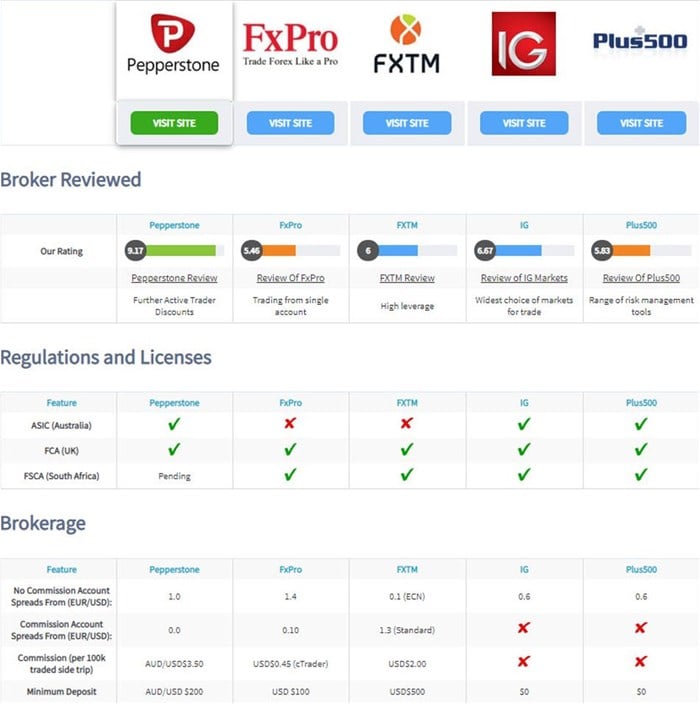Navigating the intricate world of foreign exchange (forex) trading can be a daunting task, especially for those aspiring to become forex brokers. The complexities of forex markets demand a thorough understanding of regulations and licensing requirements. This comprehensive guide delves into the intricacies of becoming a forex broker, unraveling the essential conditions and providing valuable insights for aspiring practitioners.

Image: www.bizcommunity.com
Unveiling the Forex Market: A Landscape of Global Currency Trading
The forex market stands as the world’s largest and most liquid financial market, facilitating the exchange of currencies between nations and facilitating international trade. The ever-fluctuating nature of currency values offers traders opportunities for profit, yet also presents potential risks. Currency rates are influenced by an array of factors, including economic conditions, political events, and central bank policies. Forex brokers facilitate these currency exchanges, acting as intermediaries between traders and the market.
Embarking on the Journey to Become a Forex Broker: A Path to Licensing and Regulation
The path to becoming a forex broker entails adhering to stringent regulations and obtaining the necessary licenses. These requirements vary across jurisdictions, reflecting the diverse regulatory frameworks governing financial markets. In the United States, the Commodity Futures Trading Commission (CFTC) assumes responsibility for regulating forex brokers. Aspiring brokers must register with the CFTC and abide by its stringent guidelines to ensure market integrity and investor protection.
- Navigating the Labyrinth of Regulatory Compliance: A Foundation for Ethical Brokerage
Ensuring compliance with regulatory guidelines constitutes a fundamental obligation for forex brokers. They must establish robust internal controls, implement effective risk management strategies, and maintain transparent accounting practices. Brokers are mandated to provide regular reports to regulatory authorities, ensuring adherence to established standards. Compliance failures can lead to substantial penalties, tarnishing the reputation of the brokerage firm and eroding investor trust.
- Securing the Licenses to Operate: Unlocking Access to Forex Markets
Prospective forex brokers must acquire the appropriate licenses to conduct operations legally. Depending on the jurisdiction, brokers may need to obtain various licenses, including:
- Broker-Dealer License: Authorizing the broker to buy and sell forex on behalf of clients.
- Futures Commission Merchant (FCM) License: Enabling the broker to execute forex trades on a futures exchange.
- Money Transmitter License: Allowing the broker to transfer funds on behalf of clients.
Obtaining these licenses entails meeting stringent capital requirements, passing background checks, and demonstrating a comprehensive understanding of forex markets.
- Establishing a Brokerage Firm: Building the Infrastructure for Success
Founding a forex brokerage firm involves establishing a legal entity, registering with relevant authorities, and acquiring necessary infrastructure. Brokers must secure office space, hire qualified staff, and implement robust trading platforms. Technological advancements have revolutionized forex trading, necessitating brokers to invest in cutting-edge platforms offering real-time data, charting tools, and risk management features.
- Cultivating a Client-Centric Approach: Fostering Trust and Loyalty
Building a successful forex brokerage hinges on fostering strong client relationships. Brokers must prioritize transparency, providing clients with clear and concise information about trading conditions, fees, and risks. Transparency breeds trust, laying the groundwork for long-lasting relationships with clients. Marketing efforts should focus on educating potential clients about forex trading, rather than employing aggressive sales tactics.
Capital Requirements: Pillars of Financial Stability
Capital requirements play a pivotal role in ensuring the financial stability of forex brokers. Regulatory authorities impose minimum capital thresholds to mitigate risks and safeguard client funds. These requirements vary based on factors such as the broker’s size, scope of operations, and risk profile. Meeting these capital requirements is essential for obtaining a license to operate as a forex broker.

Image: www.forex-central.net
Partnerships with Liquidity Providers: Securing Access to Market Depth
Liquidity is the lifeblood of forex trading, and establishing partnerships with reliable liquidity providers is crucial. Liquidity providers supply brokers with the necessary liquidity to execute client orders efficiently. By partnering with multiple liquidity providers, brokers can ensure sufficient liquidity during periods of high market volatility. Selecting reputable and experienced liquidity providers helps minimize slippage and ensures competitive spreads for clients.
Risk Management: Navigating the Uncertainties of Forex Trading
Risk management practices are paramount for forex brokers, safeguarding their own financial stability and protecting client funds. Comprehensive risk management frameworks should encompass:
- Client Risk Profiling: Assessing client knowledge, experience, and risk tolerance to tailor trading strategies accordingly.
- Margin Management: Setting appropriate margin limits to mitigate potential losses and protect client funds.
- Stop-Loss Orders: Enabling clients to define pre-determined thresholds for exiting trades, limiting potential losses.
- Negative Balance Protection: Safeguarding clients from account balances falling below zero, minimizing the financial impact of adverse market conditions.
Education and Training: Empowering Traders and Brokers
Continuous education and training are essential for forex brokers to stay abreast of market developments and enhance their trading capabilities. Brokers can offer educational resources to clients, including webinars, seminars, and online courses. By empowering traders with knowledge and strategies, brokers foster their success and build stronger relationships.
Technology and Innovation: Driving the Future of Forex Trading
Technological advancements are transforming forex trading, introducing innovative platforms and tools that enhance trading efficiency and accuracy. Brokers must embrace these technological advancements to remain competitive and provide clients with the best possible trading experience. Mobile trading apps, algorithmic trading tools, and artificial intelligence-powered analytics are some examples of cutting-edge technologies that are shaping the industry.
Condition To Become Forex Broker
Conclusion: Seizing Opportunities in the Evolving Forex Market
Becoming a forex broker presents a compelling opportunity to participate in the dynamic world of currency trading. By adhering to regulatory guidelines, obtaining the necessary licenses, and implementing robust risk management strategies, aspiring brokers can establish successful brokerage firms. Cultivating strong client relationships, partnering with reliable liquidity providers, and investing in education and technology will further enhance their chances of success. Embracing the challenges and opportunities in the ever-evolving forex market, brokers can contribute to the growth of this global financial ecosystem.






